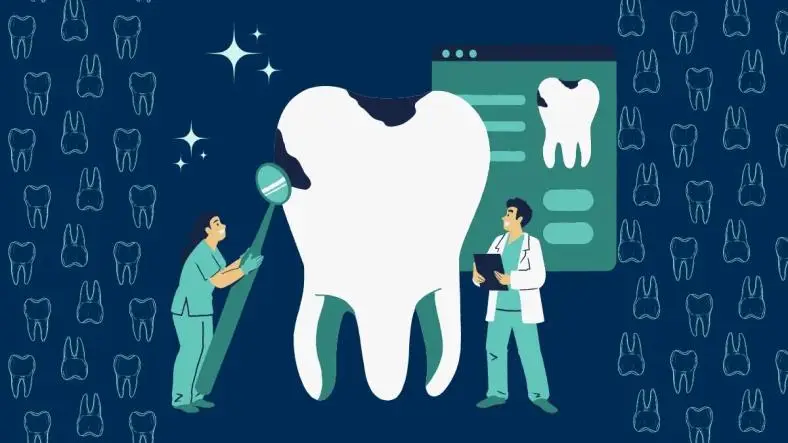Autoimmune diseases occur when the immune system mistakenly attacks the body's own tissues, leading to chronic inflammation and damage. Many autoimmune conditions, such as rheumatoid arthritis, lupus and Sjögren's syndrome, can significantly impact oral health, making comprehensive dental care crucial for managing these diseases.
Here’s a detailed article of the role of dental care in managing autoimmune diseases and maintaining overall well-being.
1. Understanding Autoimmune Diseases and Oral Health
Autoimmune diseases can manifest in various ways and their impact on oral health can be profound:
- Rheumatoid Arthritis: This condition primarily affects the joints but can also lead to temporomandibular joint (TMJ) disorders, causing pain and dysfunction in the jaw.
- Lupus: Systemic lupus erythematosus (SLE) can cause oral lesions, dry mouth and increased susceptibility to infections.
- Sjögren’s Syndrome: Characterized by dry mouth (xerostomia) and dry eyes, Sjögren's syndrome can lead to difficulty swallowing, increased dental caries and oral infections.
- Psoriasis: Though primarily affecting the skin, psoriasis can also lead to oral symptoms such as a burning sensation and mucosal lesions.
2. Managing Dry Mouth and Oral Dryness
Dry mouth is a common issue for individuals with autoimmune diseases such as Sjögren's syndrome. Effective management includes:
- Hydration: Drinking plenty of water throughout the day helps keep the mouth moist and aids in digestion.
- Saliva Substitutes: Using over-the-counter saliva substitutes can alleviate dryness and improve comfort.
- Regular Oral Care: Maintaining rigorous oral hygiene helps prevent complications associated with dry mouth, such as tooth decay and gum disease.
Google Ad 1
3. Preventing and Managing Oral Infections
Individuals with autoimmune diseases may be at higher risk for oral infections due to compromised immune function or the effects of medications. Preventive measures include:
- Regular Dental Check-Ups: Frequent visits to the dentist allow for early detection and management of infections.
- Good Oral Hygiene: Brushing twice daily with fluoride toothpaste, flossing regularly and using an antimicrobial mouthwash can help prevent infections and maintain oral health.
- Antifungal Treatments: For patients with oral candidiasis (thrush), antifungal medications prescribed by a dentist can manage and treat infections effectively.
4. Addressing Oral Lesions and Ulcers
Oral lesions and ulcers are common in autoimmune diseases like lupus. Managing these conditions involves:
- Topical Treatments: Applying topical gels or ointments prescribed by a dentist can soothe pain and reduce inflammation in oral lesions.
- Avoiding Irritants: Steering clear of spicy, acidic, or rough-textured foods that can exacerbate oral lesions helps minimize discomfort.
5. Managing TMJ Disorders
Autoimmune diseases such as rheumatoid arthritis can affect the TMJ, leading to pain and jaw dysfunction. Management strategies include:
- Pain Management: Over-the-counter or prescribed pain relievers can help alleviate TMJ pain.
- Therapeutic Exercises: Gentle exercises and physical therapy can improve jaw mobility and reduce discomfort.
- Dental Appliances: Custom-made splints or mouthguards can help manage TMJ issues and protect against teeth grinding.
Google Ad 2
6. Tailoring Dental Treatments to Patient Needs
Patients with autoimmune diseases often require customized dental care:
- Individualized Treatment Plans: Dentists should develop personalized treatment plans that consider the patient's specific autoimmune condition and its impact on oral health.
- Coordination with Healthcare Providers: Collaborating with the patient’s rheumatologist or primary care physician ensures comprehensive care and addresses any interactions between dental treatments and autoimmune therapies.
7. Educating Patients About Oral Health
Education plays a vital role in managing oral health for individuals with autoimmune diseases:
- Oral Hygiene Instructions: Providing clear instructions on proper brushing and flossing techniques helps patients maintain oral health.
- Dietary Advice: Offering guidance on diet choices that support oral health and minimize discomfort is essential for patients with dry mouth or oral lesions.
8. Monitoring Medication Effects
Medications used to manage autoimmune diseases can impact oral health:
- Side Effect Management: Dental professionals should be aware of potential side effects, such as dry mouth or gum overgrowth and provide appropriate management strategies.
- Regular Monitoring: Monitoring the oral health effects of medications and adjusting treatment plans as needed helps prevent complications and maintain oral health.
Google Ad 3
9. Addressing Psychological and Emotional Aspects
Chronic autoimmune conditions can affect mental health and well-being:
- Supportive Environment: Creating a supportive and empathetic dental care environment helps patients feel comfortable and understood.
- Stress Management: Encouraging stress management techniques can help alleviate oral health issues exacerbated by stress.
10. Advocating for Integrated Care
Comprehensive management of autoimmune diseases requires an integrated approach:
- Holistic Care: Dental professionals should work closely with other healthcare providers to ensure that all aspects of the patient’s health are addressed.
- Patient Empowerment: Encouraging patients to actively participate in their dental care and communicate any concerns helps improve outcomes and overall health.
Conclusion
Dental care plays a crucial role in managing autoimmune diseases and maintaining overall well-being. By addressing issues such as dry mouth, oral infections, TMJ disorders and oral lesions, dental professionals can help improve the quality of life for individuals with autoimmune conditions. Personalized care, regular monitoring and a collaborative approach with other healthcare providers ensure comprehensive management and support for patients. Investing in proactive dental care and education contributes to better oral health and overall management of autoimmune diseases.
Thanks for reading the dentofacts article, for more such articles read our PeoplesBLOG.















